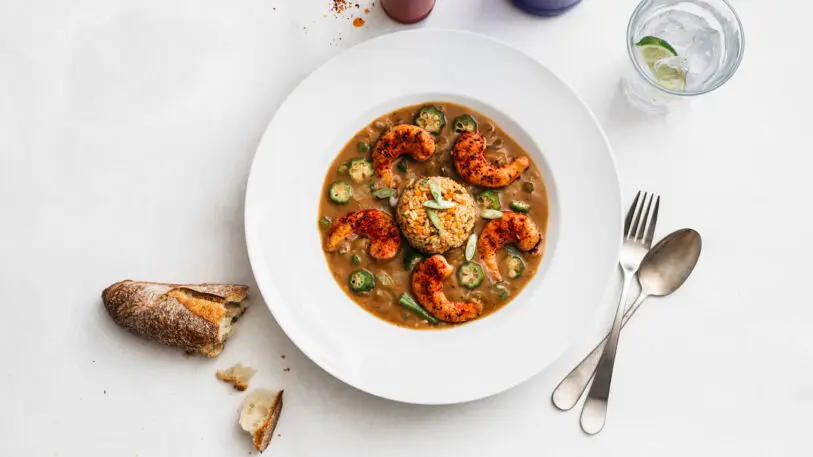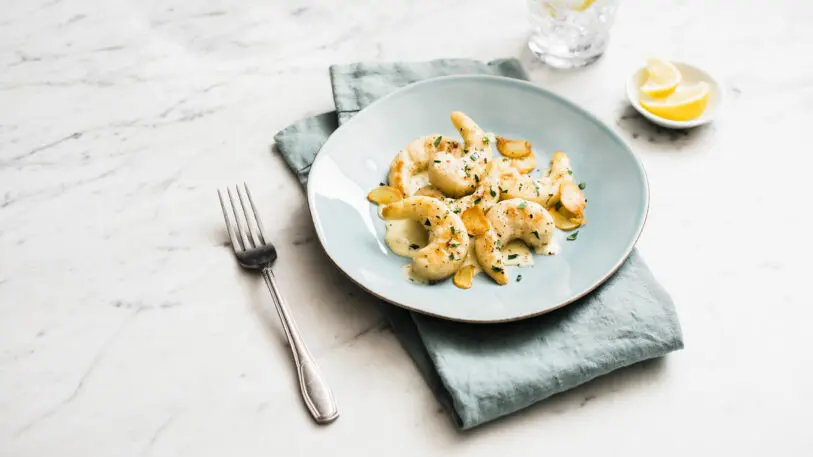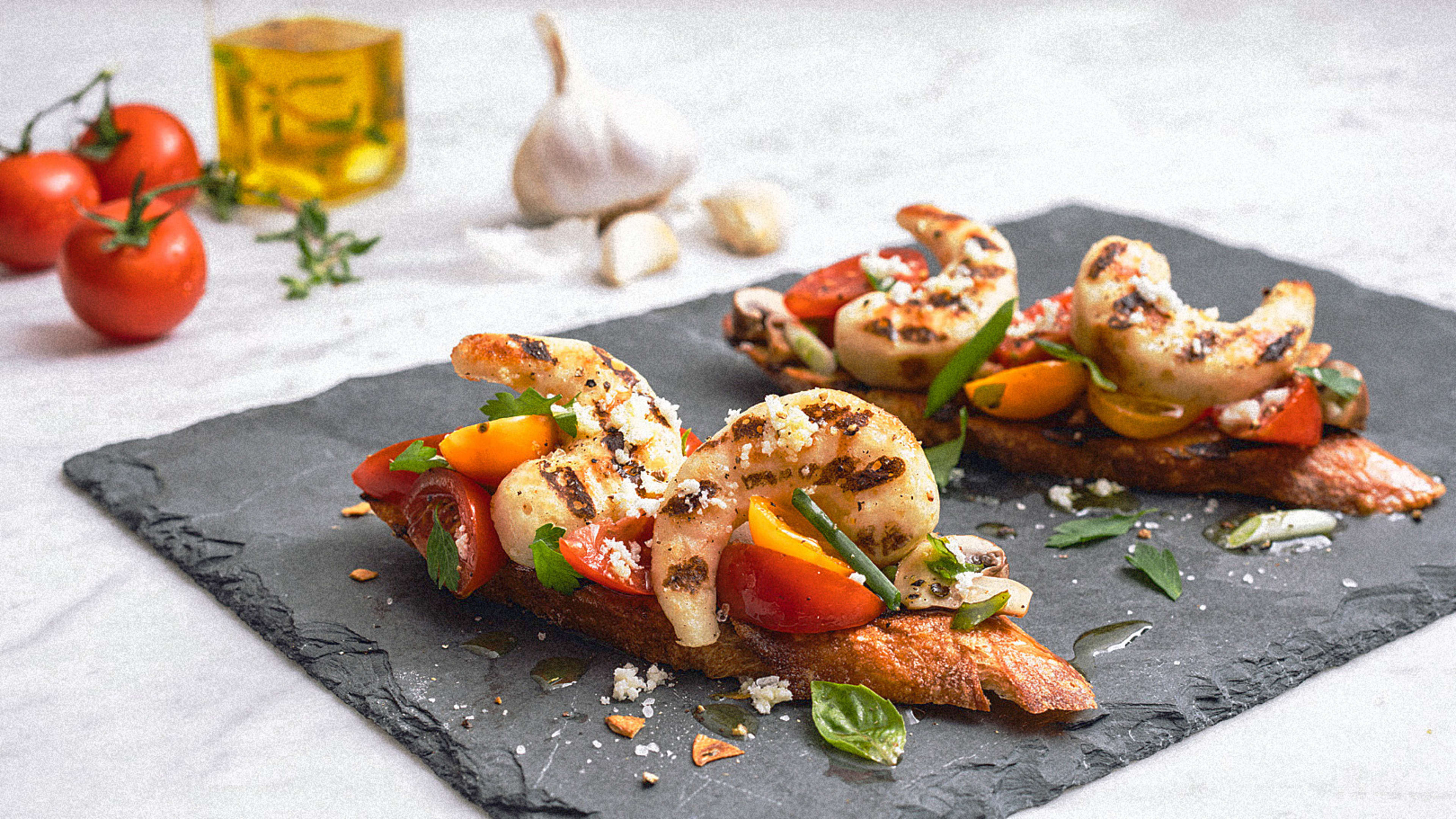After five years and $8 million dollars, sustainable seafood alternative company New Wave Foods is ready to launch its first product: plant-based shrimp.
The shrimp alternative, which the company says has the same flavor and “snap” texture of real shrimp, is made of seaweed and plant proteins derived from mung beans. New Wave Foods is also announcing that it closed an $18 million Series A funding round, led by New Enterprise Associates and Evolution VC Partners (Tyson Ventures, the VC arm of Tyson Foods, had invested in the company in 2019), which will help it scale up its shrimp alternative and bring other plant-based seafoods to market.

The plant-based protein market has primarily been focused on finding alternatives for beef, since its production is particularly harmful to the environment (raising cows requires a significant use of land, which leads to deforestation and intense water use). But when New Wave Foods first formed in 2015, the founders saw an opportunity to make alternatives for seafood. Shrimp is the most popular seafood in the U.S.: Every year, Americans eat 4.6 pounds of shrimp per capita, more than tuna (about two pounds per capita) and salmon (2.55).

New Wave Foods thinks its shrimp alternative can alleviate some of this human and environmental suffering, and with its official launch it’s hoping to enter and change the $9 billion shrimp market. “We have deemed 2021 the year of the shrimp,” McGovern says. “We’re going to come in and we’re going to own it, with two sizes, breaded, sauced—all the ways that food service operators are looking to service shrimp and all the ways consumers are looking to have it served, we’re on it. And then we’re going to follow with the rest of our shellfish.” Next up, the company will be working on plant-based alternatives to lobster, scallops, and crab.
Recognize your brand’s excellence by applying to this year’s Brands That Matter Awards before the early-rate deadline, May 3.
